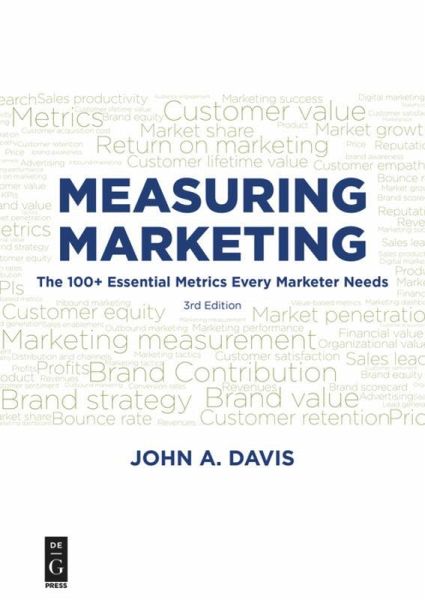
Measuring Marketing
The 100+ Essential Metrics Every Marketer Needs, Third Edition
Versandkostenfrei!
Versandfertig in 1-2 Wochen
54,95 €
inkl. MwSt.
Weitere Ausgaben:

PAYBACK Punkte
0 °P sammeln!
The demands of a more dynamic, globalized business world have led to sophisticated methods for quantifying marketing success. This informative guide defines and explains the use of more than 110 key marketing metrics for the success of your business. In eleven focused sections, this resource makes otherwise complex topics understandable. Written for marketing professionals accountable for measurable results as well as senior executives who need a firm understanding of marketing's impact on a business or product line, it clearly explains the metrics that you can use to measure marketing.Along t...
The demands of a more dynamic, globalized business world have led to sophisticated methods for quantifying marketing success. This informative guide defines and explains the use of more than 110 key marketing metrics for the success of your business. In eleven focused sections, this resource makes otherwise complex topics understandable. Written for marketing professionals accountable for measurable results as well as senior executives who need a firm understanding of marketing's impact on a business or product line, it clearly explains the metrics that you can use to measure marketing.
Along the way, you'll be introduced to a variety of important analytical tools, from brand, customer, and sales metrics to advertising, price, and distributions metrics. And with the addition of new examples and metrics-including significant updates to the online/digital/social area- Measuring Marketing, Third Edition will put you in a better position to excel at this difficult endeavor.
Along the way, you'll be introduced to a variety of important analytical tools, from brand, customer, and sales metrics to advertising, price, and distributions metrics. And with the addition of new examples and metrics-including significant updates to the online/digital/social area- Measuring Marketing, Third Edition will put you in a better position to excel at this difficult endeavor.













